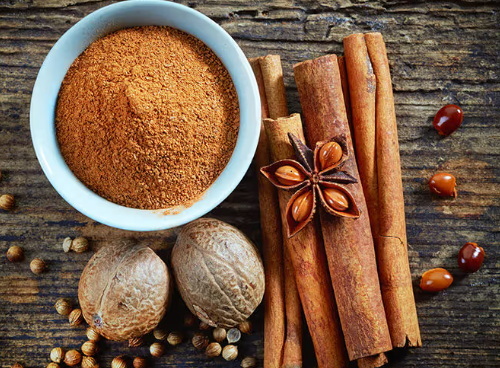Content Menu
● Introduction to Cinnamon Cassia
>> Traditional Use of Cinnamon Cassia
● Benefits of Cinnamon Cassia Stem Bark Extract
>> 1. Blood Sugar Management
>> 2. Antioxidant and Anti-Inflammatory Effects
>> 3. Antimicrobial Properties
>> 4. Cardiovascular Health
>> 5. Potential Role in Neuroprotection
● Uses in Supplements
>> 1. Dietary Supplements for Blood Sugar Support
>> 2. Weight Management Supplements
>> 3. Antioxidant and Anti-Inflammatory Formulations
>> 4. Digestive Health Supplements
>> 5. Immune System Support Supplements
● Considerations for Use
>> 1. Coumarin Content
>> 2. Quality and Standardization
>> 3. Regulatory Compliance
>> 4. Interactions and Side Effects
>> 5. Dosage Recommendations
● Conclusion
● FAQs
>> 1. What are the primary benefits of using Cinnamon Cassia Stem Bark Extract in supplements?
>> 2. How does Cinnamon Cassia Stem Bark Extract support blood sugar management?
>> 3. What are the potential risks associated with high doses of Cinnamon Cassia?
>> 4. Can Cinnamon Cassia Stem Bark Extract aid in weight management?
>> 5. How should manufacturers ensure the quality of Cinnamon Cassia Stem Bark Extract?
● Citations:
Cinnamon, derived from the bark of trees in the h3Cinnamomumh3 genus, has been a staple in traditional medicine for centuries. Among its various forms, Cinnamon Cassia Stem Bark Extract stands out for its potential health benefits and versatility in supplement formulations. This article explores the uses, benefits, and considerations of incorporating Cinnamon Cassia Stem Bark Extract into dietary supplements.

Introduction to Cinnamon Cassia
Cinnamon Cassia, scientifically known as h3Cinnamomum cassiah3, is one of the most widely available types of cinnamon. It is renowned for its strong, spicy flavor and high cinnamaldehyde content, which contributes to its distinctive aroma and medicinal properties. The use of Cinnamon Cassia Stem Bark Extract in supplements is particularly noted for its ability to support blood sugar metabolism and insulin sensitivity.
Traditional Use of Cinnamon Cassia
Cinnamon Cassia has a long history in traditional Chinese medicine, where it is valued for its warming properties and its role in managing blood sugar levels. The bark of the cinnamon tree is harvested, dried, and processed into various forms, including extracts, which are used in both culinary and medicinal applications.
Benefits of Cinnamon Cassia Stem Bark Extract
1. Blood Sugar Management
Cinnamon Cassia Stem Bark Extract is primarily recognized for its potential to improve insulin sensitivity and support healthy blood glucose metabolism. This makes it a popular ingredient in supplements aimed at managing blood sugar levels and preventing conditions like type 2 diabetes. Studies have shown that cassia cinnamon can help control blood sugar and reduce cholesterol in people with type 2 diabetes when taken daily for up to three months[4].
2. Antioxidant and Anti-Inflammatory Effects
Cinnamon Cassia contains compounds that exhibit antioxidant and anti-inflammatory properties, which can help protect against oxidative stress and inflammation in the body. These effects are beneficial for overall health and may contribute to reducing the risk of chronic diseases[1][3]. The antioxidants in cinnamon, such as polyphenols, can boost antioxidant levels in the blood and lower inflammation markers[3].
3. Antimicrobial Properties
The extract also possesses antimicrobial properties, primarily due to its high cinnamaldehyde content. This makes it effective against certain bacteria and fungi, potentially aiding in digestive health and immune system support[3]. Cinnamaldehyde has been shown to prevent the growth of bacteria like h3Staphylococcush3, h3E. colih3, and h3Salmonellah3, as well as fungi like h3Candidah3[3].
4. Cardiovascular Health
Cinnamon may also help lower triglycerides and total cholesterol levels, contributing to heart disease prevention[3]. Regular consumption of at least 1.5 grams of cinnamon per day may lower total cholesterol, LDL cholesterol, triglycerides, and blood sugar in individuals with metabolic disease[3].
5. Potential Role in Neuroprotection
Some studies suggest that cinnamon extracts could have neuroprotective effects, potentially aiding in the prevention or treatment of neurodegenerative diseases like Alzheimer's[1]. Cinnamon has been shown to reduce tau aggregation and filament formation, which are key features of Alzheimer's disease[1].

Uses in Supplements
1. Dietary Supplements for Blood Sugar Support
Cinnamon Cassia Stem Bark Extract is commonly used in dietary supplements designed to support blood sugar balance. Its ability to enhance insulin sensitivity makes it a valuable ingredient for products targeting metabolic health.
2. Weight Management Supplements
The extract's potential to influence metabolism and support healthy weight management also makes it a component in weight loss supplements. However, its effectiveness in this area may vary depending on individual health conditions and lifestyle factors.
3. Antioxidant and Anti-Inflammatory Formulations
Given its antioxidant and anti-inflammatory properties, Cinnamon Cassia Stem Bark Extract can be incorporated into supplements aimed at reducing oxidative stress and inflammation in the body. This can be beneficial for overall health and well-being.
4. Digestive Health Supplements
Cinnamon bark has been traditionally used to alleviate digestive issues such as gas, bloating, and stomach spasms[2]. Its inclusion in supplements for digestive health can provide relief from these symptoms.
5. Immune System Support Supplements
The antimicrobial properties of Cinnamon Cassia Stem Bark Extract make it suitable for supplements intended to boost immune function and protect against infections.
Considerations for Use
1. Coumarin Content
Cassia cinnamon contains higher levels of coumarin compared to other types of cinnamon, such as Ceylon. While coumarin is generally safe in small amounts, high doses can pose liver toxicity risks[4]. Therefore, precise dosing and formulation expertise are crucial when using Cinnamon Cassia Stem Bark Extract in supplements.
2. Quality and Standardization
To ensure efficacy and safety, it is essential to source high-quality, standardized extracts. This involves verifying the concentration of active compounds like cinnamaldehyde and polyphenols, which are responsible for the extract's medicinal properties.
3. Regulatory Compliance
Manufacturers must comply with regulatory standards regarding the use of herbal extracts in dietary supplements. This includes ensuring that the extract is free from contaminants and adheres to Good Manufacturing Practices (GMP).
4. Interactions and Side Effects
Cinnamon can interact with certain medications, such as blood thinners, and may not be suitable for everyone, especially those with liver conditions due to its coumarin content[4]. Common side effects include allergic reactions and gastrointestinal upset.
5. Dosage Recommendations
While there is no established standard dose for cinnamon supplements, typical recommendations range from 1/2 to 1 teaspoon (2-4 grams) of powder per day[3]. However, high doses should be avoided due to potential toxicity risks.
Conclusion
Cinnamon Cassia Stem Bark Extract offers a range of benefits that make it a valuable ingredient in dietary supplements. Its potential to support blood sugar metabolism, antioxidant defenses, and anti-inflammatory responses positions it as a versatile component in formulations targeting metabolic health and overall wellness. However, considerations regarding coumarin content, quality standardization, and regulatory compliance are essential for safe and effective use.

FAQs
1. What are the primary benefits of using Cinnamon Cassia Stem Bark Extract in supplements?
The primary benefits include supporting healthy blood glucose metabolism, enhancing insulin sensitivity, and providing antioxidant and anti-inflammatory effects.
2. How does Cinnamon Cassia Stem Bark Extract support blood sugar management?
It helps improve insulin sensitivity, which is crucial for maintaining healthy blood sugar levels and preventing conditions like type 2 diabetes.
3. What are the potential risks associated with high doses of Cinnamon Cassia?
High doses can lead to liver toxicity due to the coumarin content in Cassia cinnamon. Therefore, precise dosing is important.
4. Can Cinnamon Cassia Stem Bark Extract aid in weight management?
While it may influence metabolism, its effectiveness in weight management varies and should be combined with a healthy diet and lifestyle.
5. How should manufacturers ensure the quality of Cinnamon Cassia Stem Bark Extract?
Manufacturers should source extracts from reputable suppliers, ensure standardization of active compounds, and comply with regulatory standards.
Citations:
[1] https://pmc.ncbi.nlm.nih.gov/articles/PMC4003790/
[2] https://www.rxlist.com/supplements/cinnamon_bark.htm
[3] https://www.webmd.com/diet/supplement-guide-cinnamon
[4] https://www.rxlist.com/supplements/cassia_cinnamon.htm
[5] https://www.healthline.com/nutrition/10-proven-benefits-of-cinnamon
[6] https://www.nccih.nih.gov/health/cinnamon
[7] https://www.medicalnewstoday.com/articles/266069
[8] https://www.healthline.com/nutrition/ceylon-vs-cassia-cinnamon






























